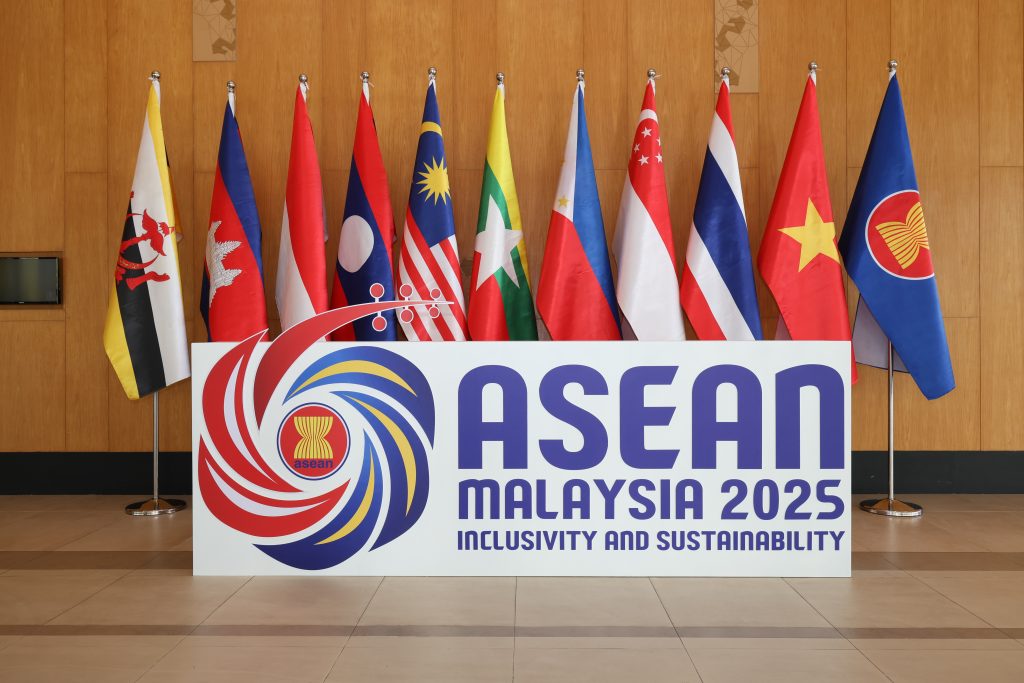
KUALA LUMPUR, Aug 6 (Bernama) — As the region commemorates ASEAN Day on August 8, Malaysians voiced their hopes for a better future through the ambitious ASEAN Community Vision (ACV) 2045, a roadmap for a united, peaceful and prosperous region over the next two decades.
A civil servant, Ameelia Roslan, 29, said ASEAN symbolises regional unity and should continue to promote cooperation, inclusivity and sustainable growth.
“To me, ASEAN represents the spirit of regional togetherness. It’s about working together, supporting one another, and building a better future for Southeast Asia, especially in ensuring sustainable development that leaves no one behind,” she told Bernama in conjunction with ASEAN Day.
Former assistant manager at private university, Siti Zatil Iman Mohd Maarof, 39, said that if she had the chance to deliver a message to ASEAN leaders, she would urge ASEAN member state to strengthen their cooperation without relying on others, especially Western countries.
“ASEAN is much richer and stronger than we realise. If the region can fully utilise its resources, it is not impossible for ASEAN to emerge as the world’s fourth-largest economy by 2030,”
For private college student Nurhikmah Harshah Zulkifli, 20, ASEAN leaders must strengthen cooperation in various aspects to ensure that less developed countries benefit from the progress of other member states.
She hopes that through the successful implementation of ASEAN Vision 2045, the region will become more harmonious, resilient and stable, one that capable of withstanding future challenges while promoting peace, unity, and sustainable development among its member states.
Universiti Teknologi MARA (UiTM) student Muhammad Ridzuan Zakaria, 24, believes Malaysia plays a significant role in promoting regional peace and is seen as a respected example, particularly among Islamic countries.
“Malaysia’s efforts in mediating the dispute between Thailand and Cambodia reflect its growing influence beyond economic development, showcasing its leadership as a host and mediator, and its emergence as a role model for Islamic countries,” he said.
Meanwhile School of International Studies Universiti Utara Malaysia deputy dean (Research and Innovation) Associate Professor Dr Siti Darwinda Mohamed Pero, said Malaysia is taking a proactive role as ASEAN Chair to strengthen regional cooperation by empowering youth, driving digital innovation, and promoting inclusive development.
“To realise the ACV 2045, Malaysia has contributed to strengthening regional education, workforce training, and student mobility, while also focussing on physical and digital connectivity through the implementation of the ASEAN Connectivity Master Plan.
“At the same time, we are mainstreaming values of good governance and human rights within ASEAN policy frameworks,” she said.
Malaysia, she said, consistently encourages active youth participation through various initiatives such as the ASEAN Youth Fellowship and the ASEAN-Malaysia Youth Mobility Programme, alongside digital platforms that enhance public engagement in ASEAN policymaking.
Siti Darwinda emphasised that youth participation is essential as young people represent a strategic force in shaping ASEAN’s future, accounting for 34 per cent of the region’s population or about 230 million individuals.
Commending Malaysia’s key achievements as ASEAN Chair 2025, she said among the achievements is the enhanced integration across the three pillars of the ASEAN community namely political-security, economic, and socio-cultural, noting that Malaysia has successfully fostered greater alignment through agendas focusing on digitalisation and capacity-building, both in infrastructure and human resources.
She applauded Prime Minister Datuk Seri Anwar Ibrahim’s role in mediating the dispute between Thailand and Cambodia, saying it demonstrates Malaysia’s leadership and responsibility as ASEAN Chair.
For Faculty of Administrative Science and Policy Studies UiTM Seremban Campus Political Science senior lecturer Shahidah Abdul Razak, as ASEAN Chair, Malaysia has continued to push for the inclusion of China in the Southeast Asia Nuclear Weapon-Free Zone (SEANWFZ), reinforcing ASEAN’s commitment to maintaining peace and stability in the region.
On digital economy, she said that Malaysia leads the implementation of the ASEAN Digital Economy Framework Agreement (DEFA), the first of its kind in ASEAN to align the region’s digital ecosystems and promote inclusive, cross-border digital trade and supply chains.
Shahidah highlighted that among Malaysia’s achievements as ASEAN Chair is the strengthening of regional diplomatic relations through inclusivity and the sustainability of ASEAN as a bloc of Global South countries, playing a vital role as a stabiliser among major powers in the Southeast Asian region.
Department of Political Science and MADANI Studies at the International Islamic University Malaysia (IIUM) lecturer Professor Dr Zainal Abidin Sanusi, said that ASEAN must adopt global sustainability diplomacy as a strategic approach to manage pressure from major global powers and safeguard regional unity.
“The strength of ASEAN lies in practising back-channel diplomacy. Normally, tensions between Thailand and Cambodia could slow resolution through official mechanisms, but with neutral diplomatic ties and trusted networks with Malaysia have enabled de-escalation without fragmenting the bloc,” he said.
Zainal Abidin said that as Malaysia holds this year’s chairmanship, it has the potential to accelerate the MADANI agenda, multi-alignment strategy and institutional reform, which could reshape ASEAN’s direction.
“Through the MADANI approach, ASEAN is strengthening its multi-alignment strategy through strong secretariats, reinforce the ASEAN Digital and Green Deal, and restructure back-channel diplomacy to shape new norms as one of the central powers,” he said.
Furthermore, to envision a developed ASEAN as the epicentre of growth in the Indo-Pacific region, he added that the bloc can become a model for middle powers by 2030, but only if it reinforces its unity, builds a regional financial hub, and acts swiftly in crises without requiring full consensus, guided by the ASEAN Resilience Index.
— BERNAMA